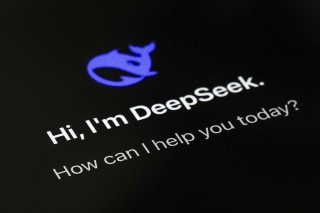Calls for sweeping AI regulation are growing louder—from D.C. hearings to tech think tanks. But amid all this hand-wringing, we can’t lose sight of what made America the global tech leader in the first place: freedom to innovate. That freedom doesn’t need to be smothered with red tape—but it does need defending, especially from foreign threats hiding in plain sight, like China’s DeepSeek.
Congress had a golden opportunity to protect that freedom by halting the explosion of conflicting state-level AI laws. A simple moratorium in the Big Beautiful Bill would have stopped over 1,000 state bills cold. Instead, they dropped it. Now we face a patchwork of rules that threatens to kneecap our tech industry just when we need it firing on all cylinders.
DeepSeek: A Friendly Face on a Serious Threat
At first glance, DeepSeek looks like just another AI tool—helping write emails, debug code, or translate languages. But behind that friendly interface lies a direct pipeline to the Chinese Communist Party. To use DeepSeek, users effectively waive their privacy rights, opening the door for their data to flow straight to Beijing. Under Chinese law, companies like DeepSeek must turn over data to the government on demand—no warrant, no notice, no appeal.
This isn’t paranoia. It’s how the CCP builds detailed profiles, crafts spear-phishing attacks, and plans broader cyber campaigns. Your résumé, your company’s budget draft, even a harmless meme sent by a state worker—these all become raw material for China’s intelligence machine.
Data isn’t just personal. It’s strategic. It feeds predictive algorithms, economic models, even war games. A student’s essay, a doctor’s notes, a journalist’s draft—typed into DeepSeek, they could all end up in a Beijing data warehouse. That’s not a privacy issue. That’s a national security crisis.
America Must Win the AI Race
Meanwhile, Chinese innovators like DeepSeek are sprinting ahead. China is closing the AI gap fast, if not already matching the U.S. in key areas. Massive Chinese investments in AI, quantum computing, and data centers should be a wake-up call.
NVIDIA’s CEO is sounding alarms. President Trump was right when he said China fears Google. Our tech giants are the front line in this race, and robust, innovative American companies are our best defense. Letting China pull ahead would mean ceding not just economic power, but also core values like free speech and individual privacy.
The stakes couldn’t be clearer. AI has the potential to add $22 trillion to the global economy each year—essentially dropping four and a half new Germanys into the world economy. The next hundred years will be defined by who leads in AI: us, China, or someone else. We can’t let overregulation at home hand that future to Beijing.
One Big Beautiful Missed Opportunity?
That’s why Congress should have passed the moratorium on state-level AI laws. Right now, over 1,000 state bills are in play—an unmanageable tangle that startups can’t navigate and even the giants will struggle with. This kind of chaos drives companies offshore, just when we need them here. Worse, it fragments our national security response and exposes us to hostile foreign tech.
The last Congress put together an excellent framework for AI oversight: narrowly targeted rules, a light-touch regulatory approach, respect for existing laws, investment in workforce development, and global leadership. Instead of rushing to create a new federal AI agency—like Sen. Blumenthal wants, with all the inevitable DEI mandates and speech controls—we should stick to that proven model.
More red tape means falling behind. Europe’s heavy-handed approach is a cautionary tale: since 2019, U.S. productivity is up 6%. Europe’s? A pitiful 0.6%. No surprise. The EU’s regulatory swamp crushed its own tech sector—zero global tech champions call Europe home.
We Can’t Afford to Repeat Europe’s Mistakes
We also can’t afford to wage progressive antitrust crusades against our best tech companies right as China gains ground. The DOJ’s attempt to dismantle Google—stripping away Chrome, maybe even Android—is the equivalent of handing Beijing a gift. This is one of our nation’s most valuable innovation engines, leading in AI and quantum computing. President Trump was right to highlight how dangerous it is to undercut these champions.
Meanwhile, data centers—critical to powering AI—are delivering real jobs and economic gains here at home. In Virginia alone, data centers pump out 74,000 jobs and $9 billion in GDP every year. Google’s Loudoun County investment added $1.1 billion and 3,500 local jobs. We need more of this, not less. States should smooth the path for data centers with tax parity, STEM education support, and clear, fast permitting—because data is national security infrastructure.
The Right Approach: Clarity, Not Chaos
Americans want AI. But they also want guardrails that keep their data out of hostile hands. They don’t want endless bureaucratic hoops that kill innovation. They want common-sense rules that stop bad actors, without smothering good ideas.
That’s why the failure to include the state-level moratorium in the BBB was such a huge miss. Congress needs to fix that—fast—and then get to work on a national AI standard rooted in permissionless innovation, narrowly tailored regulations, and the values that made America the tech powerhouse of the world.
We don’t need to fear AI itself. We need to fear what our enemies will do with it if we get out of our own way. A light touch at home. A firm grip abroad. That’s how we secure American prosperity, security, and freedom for the next century.
Andrew Langer is President of the Institute for Liberty.
Read Full Article »




